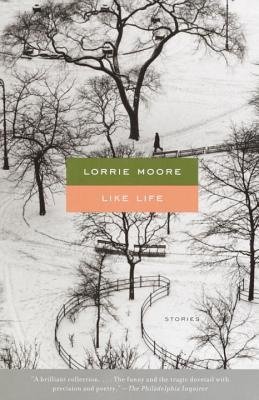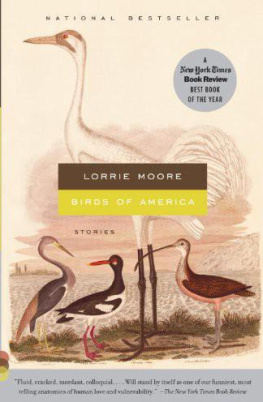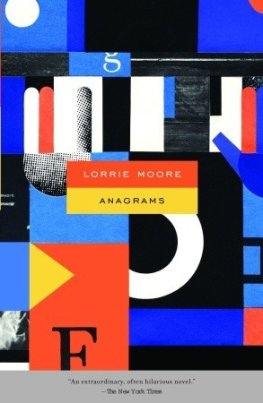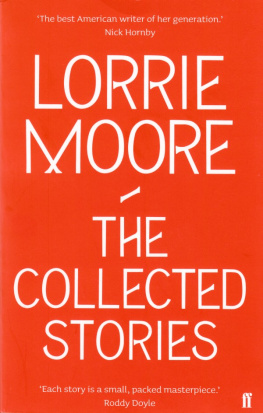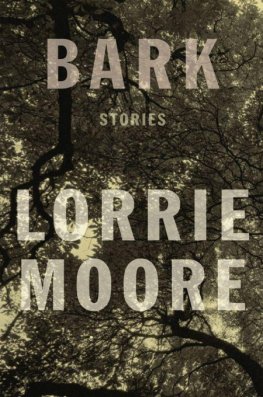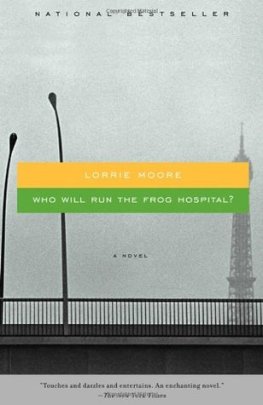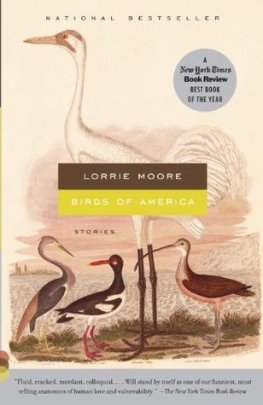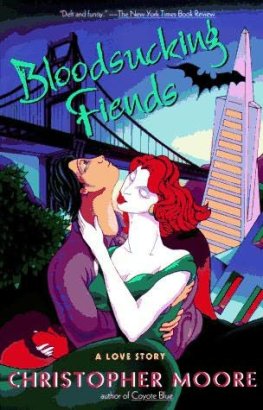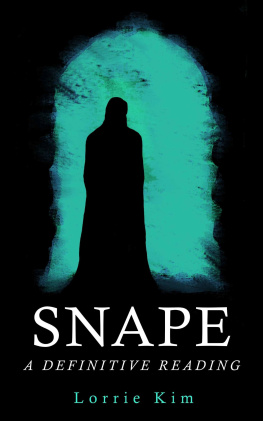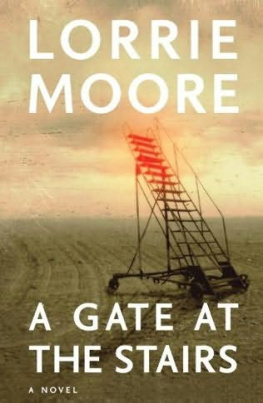Acclaim for Lorrie Moore and Like Life
Astonishingly good. Moores lively narrative voice makes the bleakest moments vibrant. A talent with endless possibilities.
The Seattle Times
Displays an impressive range of voice and tone and a punning, exuberant humor.
The Washington Post Book World
Moores comic sensibility is [close] to Dorothy Parker. Like Parker, she shows the wounds that wisecracks are meant to cauterize, and the desperate loneliness that gives rise to humor. Her brilliant and ever-expanding body of work suggests there are few enduring pleasures left to us not least of which are laughing, weeping, and marveling at the countless ways we stumble through.
The Village Voice
Although the stories in Like Life are as funny and archly observant as those in Ms. Moores earlier collection, they are also softer, wiser, more minor-key. The results are richer, more ambitious stories.
The New York Times
Ruefully funny, sweetly cynical. Thick with insight and laugh-first, think-later humor.
People
While Like Life boasts the verbal acrobatics and gallows humor of Self-Help, it contains a moving emotionality that was previously banned. Filled with lovely, almost surreal descriptions.
The Boston Globe
Taut, subversive tales fueled by a sensibility as dark as Margaret Atwoods.
The Christian Science Monitor
Ms. Moores women have the gift of wit. The stories balance brilliantly between laughter and sadness.
The Wall Street Journal
The best American writer of her generation.
The Sunday Times (London)
A stunning collection of stories about looking for love in all the wrong decades. Again and again, small passages pop up in Moores prose that take your breath away. These are stories you will want to share with everyone you love. And they are stories you will keep, in a separate, private place, all for yourself.
The Detroit News
Very sharp humor but incredibly accessible.
Nick Hornby
[Moore] is a viciously good writer with something important to say. A connoisseur of both silliness and pathos.
The Austin Chronicle
It seemed very sad to see you going off in your new shoes alone.
Zelda Fitzgerald, in a letter to her husband, February 1932
FOR THE FIRST TIME in her life, Mary was seeing two boys at once. It involved extra laundry, an answering machine, and dark solo trips in taxicabs, which, in Cleveland, had to be summoned by phone, but she recommended it in postcards to friends. She bought the ones with photos of the flats, of James Garfields grave, or an Annunciation from the art museum, one with a peacock-handsome angel holding up fingers and whispering, One boy, two boys. On the back she wrote, You feel so attended to! To think we all thought just one might amuse, let alone fulfill. Unveil thyself! Unblacken those teeth and minds! Get more boys in your life!
Her nervous collapse was subtle. It took the form of trips to a small neighborhood park, for which she dressed all in white: white blouses, white skirts, white anklets, shoes flat and white as boat sails. She read Bible poetry in the shade on the ground or else a paperback she had found about someone alone on a raft in the ocean, surviving for forty days and nights on nail parings and fish. Mary spoke to no one. She read, and tried not to worry about grass stains, though sometimes she got up and sat on a bench, particularly if there was a clump of something nearby, or a couple making out. She needed to be unsullied, if only for an afternoon. When she returned home, she clutched her books and averted her gaze from the men unloading meat in front of her building. She lived in a small room above a meat company Alexander Hamilton Pork and in front, daily, they wheeled in the pale, fatty carcasses, hooked and naked, uncut, unhooved. She tried not to let the refrigerated smell follow her in the door, up the stairs, the vague shame and hamburger death of it, though sometimes it did. Every day she attempted not to step in the blood that ran off the sidewalk and collected in the gutter, dark and alive. At five-thirty she approached her own building in a halting tiptoe and held her breath. The trucks out front pulled away to go home, and the Hamilton Pork butchers, in their red-stained doctors coats and badges printed from ten-dollar bills, hosed down the sidewalk, leaving the block glistening like a canal. The squeegee kids at the corner would smile at Mary and then, low on water, rush to dip into the puddles and smear their squeegees, watery pink, across the windshields of cars stopped for the light. Hello, they said. Hello, hello.
Where have you been? asked Boy Number One on the phone in the evening. Ive been trying to reach you. He was running for a local congressional seat, and Mary was working for him. She distributed fliers and put up posters on kiosks and trees. The posters consisted of a huge, handsome photograph with the words Number One underneath. She usually tried to staple him through the tie, so that it looked like a clip, but when she felt tired, or when he talked too much about his wife, she stapled him right in the eyes, like a corpse. He claimed to be separating. Mary knew what separating meant: The head and the body no longer consult; the wife sleeps late, then goes to a shrink, a palm reader, an acupuncturist; the fat rises to the top. Number One was dismantling his life. Slowly, he said. Kindly. He had already fired his secretary, gotten a new campaign manager, gone from stocks to bonds to cash, and sold some lakefront property. He was liquidating. Soon the sleeping wife. I just worry about the boys, he said. He had two.
Where have I been? echoed Mary. She searched deep in her soul. Ive been at the park, reading.
I miss you, said Number One. I wish I could come see you this minute. But he was stuck far away in a house with a lid and holes punched in for air; there was grass at the bottom to eat. He also had a small apartment downtown, where the doorman smiled at Mary and nodded her in. But this evening One was at the house with the boys; they were sensitive and taciturn and both in junior high.
Hmmm, said Mary. She was getting headaches. She wondered what Number Two was doing. Perhaps he could come over and rub her back, scold the pounding and impounding out of her temples, lay on hands, warm and moist. How is your wife? asked Mary. She looked at her alarm clock.
Sleeping, said One.
Soon you will join her cold digits, said Mary. One fell silent. You know, what if I were sleeping with somebody else too? she added. One plus one. Wouldnt that be better? Wouldnt that be even? This was her penchant for algebra. She wasnt vengeful. She didnt want to get even. She wanted to be even already.
I mean, if I were sleeping with somebody else also, wouldnt that make everyone happy? She thought again of Boy Number Two, whom too often she denied. When she hung up, she would phone him.
Happy? hooted Number One. More than happy. Were talking delirious. He was the funny one. After they made love, hed sigh, open his eyes, and say, Was that you? Number Two was not so hilarious. He was tall and depressed and steady as rain. Ask him, What if we both saw other people? and hed stare out the window, towering and morose. Hed say nothing. Or hed shrug and say, Fthatz
Excuse me?
Fthatz what you want. Hed kiss her, then weep into his own long arm. Mary worried about his health. Number One always ate at restaurants where the food the squid, the liver, the carrots was all described as young and tender, like a Tony Bennett song. But Number Two went to coffee shops and ate things that had nitrites and dark, lacy crusts around the edges. Such food could enter you old and sticking like a bad dream. When Two ate, he nipped nothing in the bud. It could cause you to grow weary and sad, coming in at the tail end of things like that.

